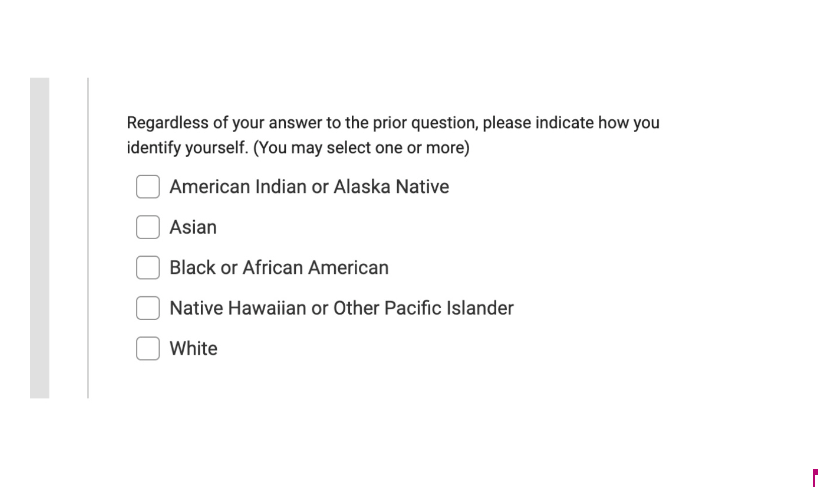Last June, the Supreme Court announced the elimination of affirmative action in the college admission process. This means that colleges are prevented from using race to determine which students to admit. Since then, the question of selecting race on the CommonApp has not been required. Will this effort actually make a difference? How do Cresskill seniors feel about their future as submission dates get closer?
“I probably will be answering the CommonApp question about race because if I don’t, in my personal experience, it can be really deceiving because a lot of Georgian people aren’t white,” says senior Tiko Tvauri. “If I claim that I was just Georgian, it would be a lie and I would be ignoring my privilege.” Seniors all seem to have a clear reason as to whether they are answering the optional question or not. Another anonymous Cresskill senior says, “My consultant and other teachers all said even if you don’t put race in your CommonApp, they’ll still know your race. They’re gonna see my name, last name, and activities.”
Because of this, there are a handful of students who do not have any hope for more inclusivity in later years. They believe that this act is futile, and nothing will change because the admissions can still tell race from last names alone. When asked about the change in diversity level at schools, Tiko says, “I doubt that it’s going to change anything, but I think that it’s going to help out a lot of Asian Americans because I know that it’s like a complaint that it’s discriminatory against them.” Even if no numbers necessarily change this year, minorities in college populations can be reassured that at least some strides toward equal chances are being made.
The vagueness of the decision keeps students on edge, waiting for results to prove its reliability or flaws. All schools could go about it in many ways. For example, some schools even require an essay about diversity, which would ruin the point of taking away race as a point of characteristic. Every school’s priorities are completely different from another, enhancing the pure uniqueness each situation can bring.
“As much as we can try to solve this stuff, it’s very much on an individual basis. Admissions officers determine everything,” Tiko says. “I think we do have a potential of getting to a point where we see a difference in numbers in college, but I doubt that anything will change this year.”








